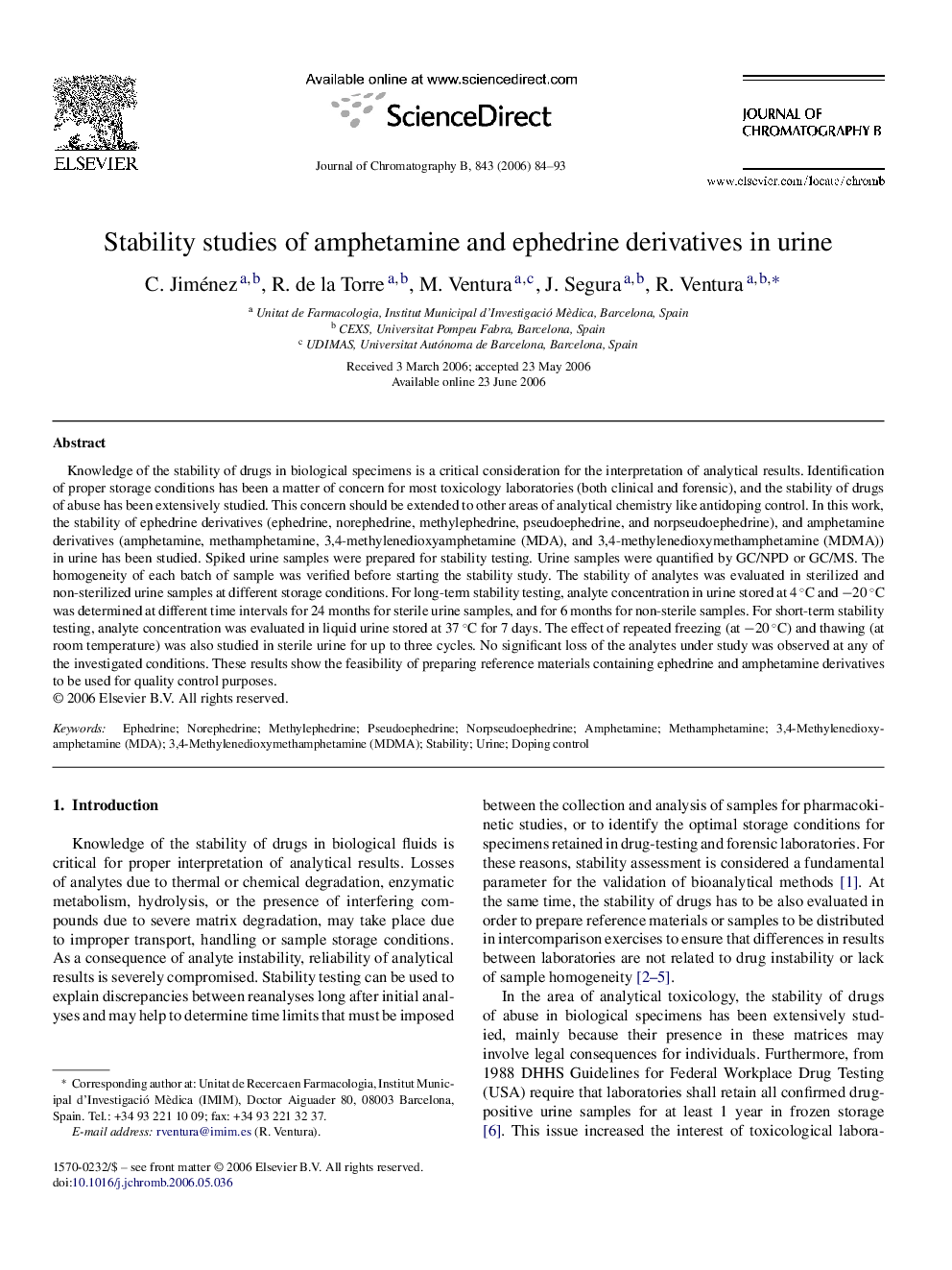| Article ID | Journal | Published Year | Pages | File Type |
|---|---|---|---|---|
| 1217278 | Journal of Chromatography B | 2006 | 10 Pages |
Knowledge of the stability of drugs in biological specimens is a critical consideration for the interpretation of analytical results. Identification of proper storage conditions has been a matter of concern for most toxicology laboratories (both clinical and forensic), and the stability of drugs of abuse has been extensively studied. This concern should be extended to other areas of analytical chemistry like antidoping control. In this work, the stability of ephedrine derivatives (ephedrine, norephedrine, methylephedrine, pseudoephedrine, and norpseudoephedrine), and amphetamine derivatives (amphetamine, methamphetamine, 3,4-methylenedioxyamphetamine (MDA), and 3,4-methylenedioxymethamphetamine (MDMA)) in urine has been studied. Spiked urine samples were prepared for stability testing. Urine samples were quantified by GC/NPD or GC/MS. The homogeneity of each batch of sample was verified before starting the stability study. The stability of analytes was evaluated in sterilized and non-sterilized urine samples at different storage conditions. For long-term stability testing, analyte concentration in urine stored at 4 °C and −20 °C was determined at different time intervals for 24 months for sterile urine samples, and for 6 months for non-sterile samples. For short-term stability testing, analyte concentration was evaluated in liquid urine stored at 37 °C for 7 days. The effect of repeated freezing (at −20 °C) and thawing (at room temperature) was also studied in sterile urine for up to three cycles. No significant loss of the analytes under study was observed at any of the investigated conditions. These results show the feasibility of preparing reference materials containing ephedrine and amphetamine derivatives to be used for quality control purposes.
